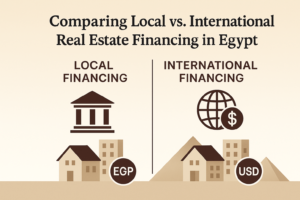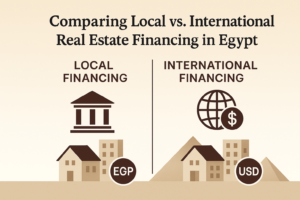In 2025, Egypt’s rental market underwent significant transformations with the introduction of new rent laws and amendments to existing regulations. These changes aim to balance the interests of landlords and tenants, reflecting the evolving economic landscape. Understanding these reforms is crucial for all stakeholders to navigate the rental market effectively.
Overview of the Old Rent Law
The old rent law established decades ago, was designed to protect tenants from arbitrary rent increases and eviction. While it provided housing stability, it often resulted in disproportionately low rents, limiting landlords’ income and discouraging property maintenance and investment.
Key Amendments to the Old Rent Law in 2025
In response to longstanding concerns, the government enacted several amendments to the old rent law in 2025:
- Incremental Rent Increases: A 15% annual increase in rent for non-residential properties leased to legal entities was mandated, effective from March 2022 and continuing until March 2027. This measure aims to align rents more closely with current market values.
- Termination of Perpetual Leases: The amendments set a five-year transitional period after which leases with legal entities would be terminated, allowing landlords to reclaim their properties or renegotiate terms.
- Reassessment of Residential Rents: The law initiated a review process to adjust residential rents established under the old law, aiming to balance tenant protection with fair returns for landlords.
Introduction of the New Rent Law in 2025
Alongside amendments to the old law, a new rent law was introduced to regulate future rental agreements:
- Market-Based Rent Setting: The new law allows rents to be determined by market dynamics, encouraging a more competitive and transparent rental market.
- Defined Lease Terms: It establishes clear guidelines for lease durations and renewal conditions, providing certainty for both landlords and tenants.
- Dispute Resolution Mechanisms: The law introduces streamlined processes for resolving rental disputes, aiming for quicker and more equitable outcomes.
Impact on Landlords
For landlords, these reforms offer opportunities and challenges:
- Increased Rental Income: The phased rent increases provide a path to higher rental income, aligning with inflation and property values.
- Property Reclamation: The ability to terminate long-standing leases with legal entities after the transitional period allows landlords to repurpose or sell their properties.
- Compliance Obligations: Landlords must adhere to new regulatory requirements, including proper documentation and adherence to rent increase schedules.
Impact on Tenants
Tenants also face significant changes under the new regulations:
- Gradual Rent Increases: Tenants in non-residential properties leased to legal entities will experience annual rent hikes, necessitating budget adjustments.
- Lease Termination Risks: At the end of the transitional period, tenants may need to renegotiate leases or seek alternative premises.
- Enhanced Legal Protections: The new law provides clearer terms and protections, reducing the likelihood of arbitrary eviction or unfair practices.
Practical Steps for Stakeholders
To adapt to these changes, both landlords and tenants should consider the following:
- Review Lease Agreements: Examine current contracts to understand how the new laws apply and identify necessary adjustments.
- Seek Legal Counsel: Consult legal professionals to navigate the complexities of the new regulations and ensure compliance.
- Engage in Open Communication: Maintain transparent discussions between landlords and tenants to negotiate fair terms and address concerns proactively.
Egypt’s 2025 rent law reforms represent a significant shift towards a more balanced and modern rental market. By understanding and adapting to these changes, landlords and tenants can foster a more equitable and sustainable rental environment.
FAQs
- What properties are affected by the 15% annual rent increase?
Non-residential properties leased to legal entities are subject to a 15% annual rent increase from March 2022 to March 2027. - When will perpetual leases under the old rent law be terminated?
Leases with legal entities will be terminated after a five-year transitional period ending in March 2027, allowing landlords to reclaim their properties. - How does the new rent law affect future rental agreements?
The new law allows market-based rent setting, defines lease terms, and introduces streamlined dispute resolution mechanisms. - What should tenants do to prepare for these changes?
Tenants should review their lease agreements, consult legal counsel, and engage in open communication with landlords to negotiate fair terms. - How can landlords ensure compliance with the new regulations?
Landlords should familiarize themselves with the new laws, seek legal advice, and maintain proper documentation to adhere to regulatory requirements.
Navigating these legal changes can be complex. Consult, a leading real estate investment consultancy, specializes in market analysis, property acquisition, portfolio management, and ROI optimization. Our expertise ensures that you make informed decisions in this evolving landscape. Contact Consult today for expert guidance tailored to your real estate investment needs.

















